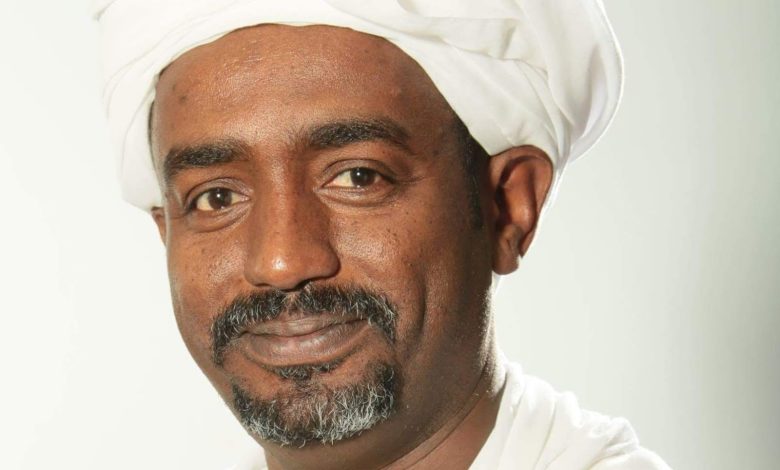In the Mailbox of Traditional Leaders

By Dr. Hassan Saeed Al-Mujammar
The most difficult adversary that the traditional leaders—those inciting and mobilizing young men from their tribes to fight alongside the rebel Rapid Support Forces (RSF)—will face is not General Al-Burhan, the Commander-in-Chief of the Sudanese Armed Forces, nor his comrades among the military leaders, soldiers, or armed movements and volunteers. These forces are fighting as one solid block in fierce battles to liberate towns and villages and facilitate the return of the displaced and refugees to their homes. Rather, their greatest adversary will be the mothers of those misled young men who took up arms and were swept up in a fervor of war that contradicts the values of religion, Sudanese culture, and long-established traditions.
These deceived young men have had their worldly lives ruined by their tribal leaders—and will ruin their afterlives as well—on the Day when all will testify and the scales of justice are set. This is because they were not killed defending honor, life, property, religion, or reason—the five essentials for which fighting is permitted and for which dying grants martyrdom. Instead, they were killed while violating these very principles in regions hundreds of miles away from their homes, in eastern and western Gezira State, and in the states of Sennar, White Nile, and North Kordofan. Not even the rights of neighborliness in West Darfur spared people from being slaughtered or buried alive, let alone the relentless shelling endured by the people of El Fasher.
What religious or moral justification will these chiefs, tribal elders, or traditional leaders offer when faced with divine judgment—when confronted by a violated woman whose honor was defiled before her parents or husband? Or by an elderly man whose beard was mocked and plucked out? Or a prisoner starved to death? Or a sick person denied access to treatment and medicine? Or a child whose mother was killed before his eyes? Or a merchant whose warehouses were looted and wealth plundered?
What justification allows them to rally behind a man whom the army elevated to deputy commander without ever earning the honor of graduating from the military college—the cradle of heroes and forge of men? And what reasoning allows them to adopt rhetoric about fighting the former regime when it was that same regime that legitimized the existence of the RSF, which international organizations have accused of committing genocide and crimes against humanity in Darfur, long before its atrocities spread across most of Sudan’s states?
How will they answer their grandchildren if asked about the role of their ancestors in the independence of Sudan (the 1956 state)? Or how one of their own rose to call for independence in parliament? Or how they welcomed the first Prime Minister during his visit to Darfur in Ed Daein with joy and hospitality? And how will they explain the tragedy of Anas Omar, the former governor of East Darfur, whose efforts to improve the lives of the state’s citizens did not save him from being kidnapped from his home in Khartoum, forcibly disappeared, arbitrarily detained, and stripped of his basic human rights?
Traditional leaders in Sudan have, throughout the country’s long history, been supported and empowered by the state during all pre- and post-independence regimes. During those times, they held the highest political, military, and academic positions in the much-maligned 1956 state. Their children enjoyed equal access to employment and educational opportunities alongside their fellow Sudanese from other grieving regions. In fact, the Sudanese people collectively overcame the tragedies of the Metemma Massacre in 1897 and the Daein Train Massacre in 1987, aspiring to rise above past wounds and build a state of law and institutions, rebuild trust, and establish lasting peace.
Among the most critical duties and responsibilities of traditional leaders—especially in areas where the RSF is active—is to immediately instruct their sons to stop fighting. They must denounce the widespread looting and pillaging suffered by Sudanese citizens across all states, who have endured forced displacement. They should issue a courageous call to RSF leaders to end the war before it is too late, and urge those fighting youths to lay down their arms and return to their villages, towns, and nomadic communities. The goal the RSF is chasing will never be reached. Indeed, no tribe or coalition of tribes in Africa has ever defeated a national army and taken control of a state. In Sudan, this is especially difficult, for the army—backed by the people—has defended the nation’s borders and dignity for over a hundred years without faltering.
Traditional leaders also bear the responsibility of returning to the wellspring of wisdom from which they once drew the art of mediation, the traditions of reconciliation, and the “Tree Courts” that were endorsed by the judiciary and helped prevent bloodshed and revenge killings.
Their duties also include recognizing victims’ rights, accepting accountability, upholding the rule of law, respecting state institutions, and rebuilding public trust. After all, what is a state without a strong army, an independent judiciary, or broad political participation?
Finally, they must be alert to the enormous threats surrounding their country due to its wealth and natural resources and stand as a barrier against foreign agendas and intersecting global interests. No one is more invested in the safety of the nation and its people than the Sudanese themselves. Let them remember that most existing infrastructure was built by Sudanese hands. When the colonizer left, he left behind well-lit, consumerist cities and productive, darkened rural areas. It is not difficult to assess the number of schools, hospitals, roads, airports, power plants, and water stations left by the colonizer versus what successive national governments have achieved—despite sanctions and ongoing armed conflicts that have robbed Sudanese people of even a single year of peace without the scourge of displacement and refuge.



